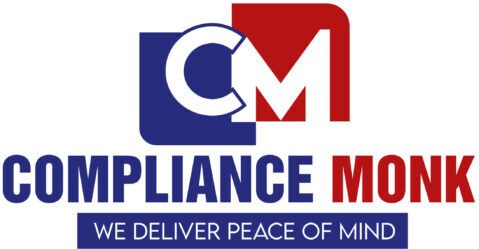Are you looking for a trusted partner?
MOA Amendment: Simplify Business Changes with Compliance Monk
In the ever-evolving business landscape, companies often need to modify their Memorandum of Association (MOA) to align with new strategies, goals, or operational shifts. Since the MOA is a legal cornerstone defining a company’s objectives and scope, any changes must comply with the Companies Act, 2013.
- Get your work done by professionals with 10+ years of experience.
- MOA Amendment Process under CA supervision.
- Initial free cosnulation with the best price in the industry.

Memorandum of Association Amendment involves multiple legal steps, strict timelines, and compliance requirements. At Compliance Monk, we take care of everything—from drafting resolutions to filing with the ROC—so you can focus on your business.
📞 Contact our experts today and make your MOA amendments stress-free!
Key Advantages
Expert Guidance
Our skilled professionals will navigate you through every step, making the registration experience seamless.
Quick Turnaround
We value your time and ensure prompt services, helping you initiate your business promptly and effectively.
Reliable Support
Our dedicated support team is always ready to answer your questions, assisting you every step of the way.
MOA Amendment
What is a Memorandum of Association (MOA)?
The MOA is the legal document that defines a company’s identity, operational scope, and shareholder relationships. It is drafted during incorporation and lays out key clauses governing the company’s activities.
The MOA contains several crucial clauses:
- Name Clause – Defines the official company name.
- Situation Clause – Specifies the registered office location.
- Object Clause – Outlines the business activities the company is permitted to undertake.
- Liability Clause – Establishes the liability of members (limited by shares or guarantee).
- Capital Clause – Details the company’s authorized capital and shareholding structure.
- Subscription Clause – Includes the initial subscribers who form the company.
MOA Amendment: What Does It Mean?
An MOA amendment refers to modifying any of the clauses mentioned above, except the Subscription Clause, under Section 13 of the Companies Act, 2013. This is often necessary when a company expands its operations, restructures, or shifts its strategic focus.
When Should a Company Amend Its MOA?
A company may need to alter its MOA in the following cases:
✅ Change of Name
✅ Registered Office Relocation (Inter-State)
✅ Modification of Object Clause
✅ Altering the Liability Clause
✅ Changes to Capital Clause
✅ Increasing Authorized Capital
Documents Required for MOA Amendment📋
To process an MOA amendment, a company must submit:
📌 Revised MOA – Reflecting the proposed changes.
📌 Certified Copy of Special Resolution – Approved at the Extraordinary General Meeting (EGM).
📌 Explanatory Statement – Justifying the modifications.
📌 EGM Notice – Informing members about the proposed changes.
📌 Form MGT-14 – Filed with the Registrar of Companies (ROC) for approval.
Step-by-Step Process for MOA Amendment 🛤️
Amending an MOA follows a structured legal process under the Companies Act, 2013:
Step 1: Board Resolution
Step 2: Special Resolution Drafting
Step 3: Notice for General Meeting
Step 4: Extraordinary General Meeting (EGM)
Step 5: Filing with ROC
Step 6: Registrar’s Approval & MOA Update
Step 7: Internal Updates & Notifications
At Compliance Monk, we take care of everything—from drafting resolutions to filing with the ROC—so you can focus on your business. Our expert team ensures:
- Hassle-free documentation and filing.
- Timely updates and transparent communication.
- Guidance on choosing the right set of forms.
- Continuous support for every compliance and legal obligations.
FAQs
1. What is a Memorandum of Association (MOA)?
The MOA (Memorandum of Association) is a legal document that defines a company’s scope, objectives, and operational framework. It is prepared during incorporation and acts as the company’s charter.
2. Why does a company need to amend its MOA?
A company may need to amend its MOA due to changes in its name, registered office, business objectives, authorized capital, liability structure, or other key operational aspects.
3. Which clauses in the MOA can be amended?
All clauses except the Subscription Clause can be amended, including:
- Name Clause
- Situation Clause (Registered Office)
- Object Clause
- Liability Clause
- Capital Clause
4. What is the process for amending an MOA?
The process involves:
- Board resolution to approve the amendment.
- Special resolution passed at an Extraordinary General Meeting (EGM).
- Filing Form MGT-14 with the Registrar of Companies (ROC).
- Registrar’s approval and update of company records.
5. How long does the MOA amendment process take?
The timeline depends on the nature of the amendment and ROC processing time. Typically, it takes 30-45 days, subject to approvals.
6. Do all MOA amendments require shareholder approval?
Yes, a special resolution requiring at least 75% shareholder approval is necessary for most MOA amendments.
7. What are the documents required for an MOA amendment?
- Revised MOA with proposed changes.
- Certified copy of the special resolution.
- Explanatory statement detailing the amendment.
- EGM notice sent to members.
- Form MGT-14 for ROC filing.
8. Can a company change its name through an MOA amendment?
Yes, a company can change its name by passing a special resolution and updating its MOA. Central government approval may be required in certain cases.
9. How can a company change its registered office to another state?
A company must pass a special resolution, obtain approval from both state ROCs, and amend its Situation Clause in the MOA.
10. What happens after an MOA amendment is approved?
Once the ROC registers the amendment, the company must update its internal records, notify stakeholders, and reflect changes in official documents.
11. Can a company increase its authorized capital through an MOA amendment?
Yes, a company must amend its Capital Clause if it plans to raise its authorized capital to issue more shares.
12. What penalties apply for non-compliance with MOA amendment procedures?
Failure to comply with the amendment process, including delayed filings, can result in penalties under the Companies Act, 2013, and potential legal consequences.

